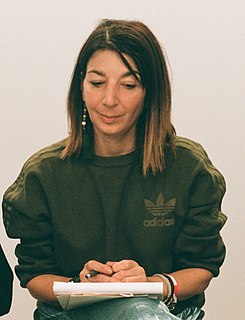A Quote by Jeff Vandermeer
I think I got a complete picture of what the lives of scientists are like. My father is of the opinion that if scientists are allowed to follow their nose, eventually it results in something. Unfortunately that doesn't always happen. What I came out of it with, in a non-cynical way, was that the scientific process is as messy as anything else. There's nothing wrong with that. That's just the way it is.
Related Quotes
I feel that I've often pointed out that there are countless aspects of life and nature that scientists and scientific thinkers cannot explain. Why the universe is accelerating in its expansion and what came before the Big Bang serve as compelling examples. The process of science provides a way to seek answers to those questions.
Global warming is a false myth and every serious person and scientist says so. It is not fair to refer to the U.N. panel. IPCC is not a scientific institution: it’s a political body, a sort of non-government organization of green flavor. It’s neither a forum of neutral scientists nor a balanced group of scientists. These people are politicized scientists who arrive there with a one-sided opinion and a one-sided assignment.
People often think of artists and scientists as being diametrically opposed, but we both believe something is possible. We have a hypothesis and then we do everything to make it possible, but we don't know if it's possible! All the scientists I've worked with have a natural, easy fit with me. The solutions they find are truly creative. All scientists, in some way, are artists.
These are people from everywhere, from Lawrence Livermore and JPL and Sandia National Labs, the FBI, all over the place, real scientists who see what we're doing, and they consistently thank us. "I agree your results aren't always right," they'll say, "but your methods are clearly showing that science is a re-creative process, and it's an interesting process because it's messy, and no other shows show that."
Science will always raise philosophical questions like, is any scientific theory or model correct? How do we know? Are unobserved things real? etc. and it seems to me of great importance that these questions are not just left to scientists, but that there are thinkers who make it their business to think as clearly and slowly about these questions as it is possible to. Great scientists do not always make the best philosophers.
Here's the scientific community saying, fundamentally, "If we don't change our ways, we're screwed." And they got no attention at all. Even though the Union of Concerned Scientists put out this statement which was signed by more than half of all the Nobel laureates in science and another 1,500 distinguished scientists.
My fear is that that's what's going to happen with robotics and the military. Importantly, this discussion has to involve not just the scientists, but also the political scientists. It's got to be a multidisciplinary discussion. You can't have it be another repeat of what happened with the people working on the atomic bomb.
Phony psychics like Uri Geller have had particular success in bamboozling scientists with ordinary stage magic, because only scientists are arrogant enough to think that they always observe with rigorous and objective scrutiny, and therefore could never be so fooled while ordinary mortals know perfectly well that good performers can always find a way to trick people.
The scientists from Franklin to Morse were clear thinkers and did not produce erroneous theories. The scientists of today think deeply instead of clearly. One must be sane to think clearly, but one can think deeply and be quite insane. Today's scientists have substituted mathematics for experiments, and they wander off through equation after equation, and eventually build a structure which has no relation to reality.
I think that's the mother and father of all cop-outs. It's an honest scientific quest to discover where this apparent improbability comes from. Now [Francis] Collins says, "Well, God did it. And God needs no explanation because God is outside all this." Well, what an incredible evasion of the responsibility to explain. Scientists don't do that. Scientists say, "We're working on it. We're struggling to understand."






































